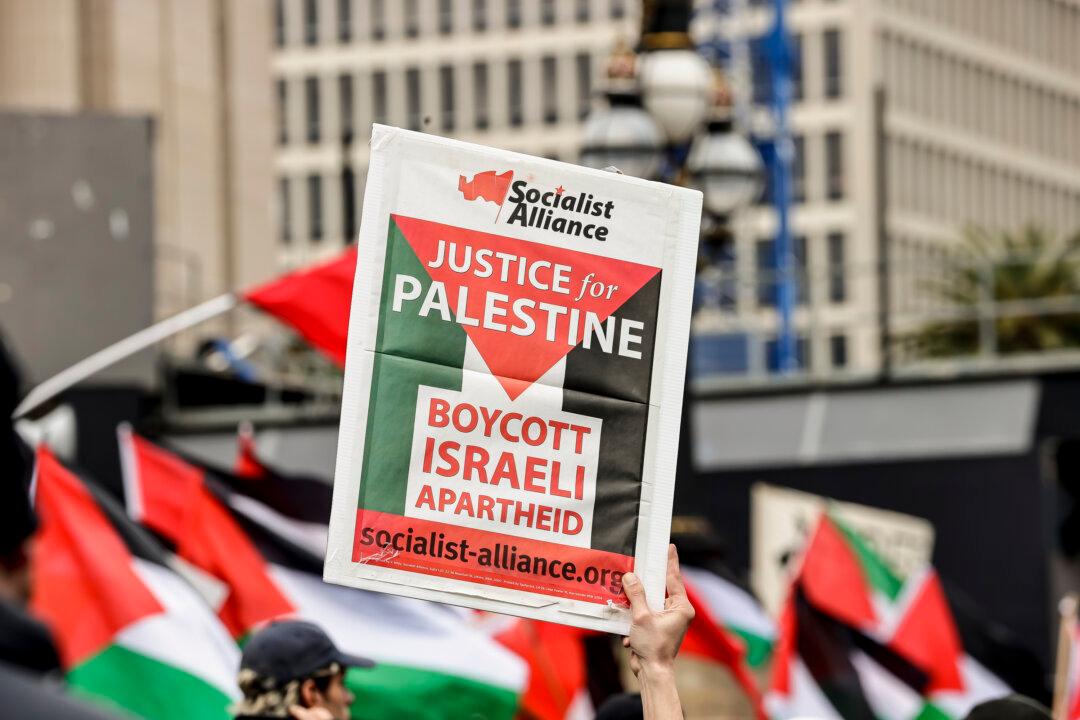A deep ideological conflict between the global left, backed by China, and the liberal world order led by the United States, has guided the geopolitical narrative war in the aftermath of Hamas’s Oct. 7 attack on Israel, according to experts.
That liberal international order—a governing philosophy defined largely by the United States—has guided the use of power in the interests of freedom in the decades since World War II. It is now under attack as never before, say experts, an attack that extends from physical violence to conflict in the halls of global social media.





